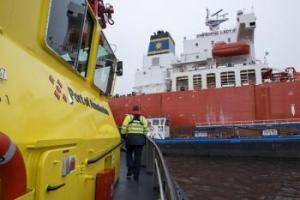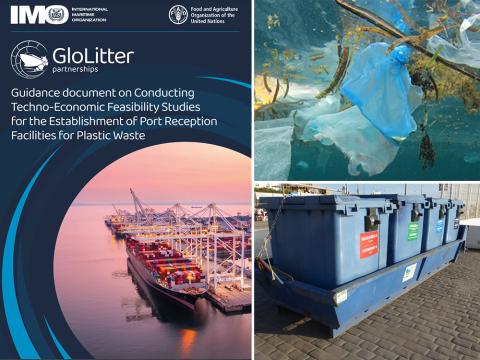Harbour Master
Harbour Masters
Worldwide there are approximately 3,000 merchant ports and the work of the Harbour Master can vary widely from country to country and from port to port even within the same country.


A new guide to support countries to put in place port reception facilities to receive marine plastic litter from ships has been published. Plastic litter has devastating effects on oceans, marine life and human health. Some scientists warn that, by 2050, the quantity of plastics in the sea will outweigh fish.
With the title Guidance Document on Conducting Techno-Economic Feasibility Studies for the Establishment of Port Reception Facilities for Plastic Waste the document has been developed by the GloLitter Partnership team*.
The paper is by Guido Van Meel, IMO Consultant from Ostend. It is published by the IMO and Peer Reviewed by the Food and Agriculture Organization of the United Nations (FAO). It can be downloaded by clicking here:
This document outlines the costs of operating a port reception facility and the revenue that such facilities can generate. It provides tools and guidance on conducting economic assessments and techno-feasibility studies concerning port reception facilities for plastic waste generated on board ships, including fishing gear. Case studies of waste reception facilities in different ports around the world (large and small) are used to illustrate the relevant income and expenditure flows.
Ports need to cover the costs incurred in collecting and treating the waste received from ships by charging direct and/or indirect fees, and by selling products derived from the waste. In smaller ports with limited vessel calls, it is deemed essential that all ships contribute to the cost of provision of reception facilities, including those ships not actually using them. Reception facilities in large ports are on standby around the clock so that ships that need to discharge waste are not unduly delayed. In smaller ports this would be too costly.
IMO is taking action to address the issue of marine plastic litter from ships. In 2021 the Marine Environment Protection Committee (MEPC) adopted its Strategy to address marine plastic litter from ships. It aims to achieve zero plastic waste discharges to sea from ships by 2025.
GloLitter is an IMO partnership project with the UN’s Food and Agriculture Organization (FAO) funded by Norway, The Kingdom of Saudi Arabia and The Commonwealth of Australia. It assists developing countries to prevent and reduce marine litter, especially plastic marine litter, within the maritime transport and fisheries sectors and identify opportunities for the reduction of plastic uses in both industries.
The project expands government and port management capacities, and instigates legal, policy and institutional reforms at the country level by developing mechanisms for sustainability and enhancing regional cooperation.
*For more on the GloLitter Partnership see here:
https://www.imo.org/en/ourwork/partnershipsprojects/pages/glolitter-partnerships-project-.aspx
Illustration per www.imo.org
IMO ©
Founded in 2017, MarineLabs delivers high-resolution, real-time, and historical wind, wave, and weather data, as well as hyper-local 10-day forecasting, from a growing network of cloud-connected, rugged sensor nodes.
The International Harbour Masters Association (IHMA) and the Port of Rotterdam Authority are pleased to announce the 15th International Harbour Masters Association Congress, to be held from 09–12 June 2026 at Theater Zuidplein in Rotterdam.